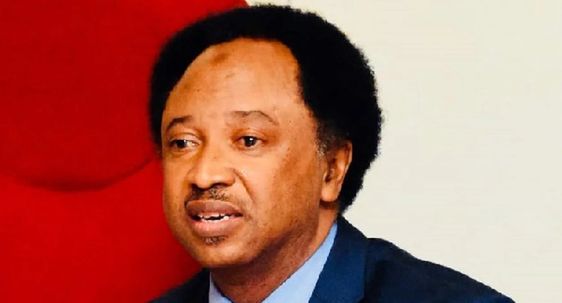Nigeria
Sen. Sani explains why military takeovers of governments are becoming more prevalent in West Africa

Sen. Shehu Sani, a former member of the National Assembly, has outlined five causes for the resurgence of military coups in Africa, particularly in the West African subregion.
In an interview with the News Agency of Nigeria (NAN) in Abuja, Sani expressed displeasure over what he perceived to be the rising recurrence of juntas in politics, particularly in West African nations, but he insisted that the circumstances were being set up for them to return.
“Over the past few years, we have witnessed the demise of democracies in the West African sub-region. Guinea, Burkina Faso, Mali, and now the Niger Republic have all experienced it.
“Coup d’etats are internal problems; they do not occur overnight. The environment is set up for the military to seize control. There are currently roughly five conditions in West Africa that I have identified as being the cause.
“The first is the subversion of democratic principles. Voting is rigged. Many people who identify as Democrats have little regard for the law. Additionally, the constitutions are routinely broken.
“When that happens, the spirit of democracy is slain and the seeds of its demise are sown.
Economic inequity and inequality are the second. The country is rife with poverty. Additionally, poverty causes social unrest and crises in society. By doing so, a climate of unconstitutional takeover of the government is fostered, providing evidence for those who argue that because people are suffering, democracy is failing and that the military should take control.
The eighth National Assembly’s Sani, who served as the Senate Committee on Foreign Affairs’ vice chair, cited the third cause as the problem of insecurity.
“Civilian authorities in the Sahel now rely on the military for their safety and security due to the growth of terrorist organisations there, including Boko Haram, the ANSARU, and ISWAP.
They are relied upon so heavily. And as a result, they now think and act as though they ought to be in command.
“The fourth relates to the absence of a concerted effort to preserve democracy in Africa. You discover that there is never a planned strategy or coup-related punishment. They occur and carry on occurring.
Therefore, if the democracy had been preserved, the coup in Niger might have been avoided.
“Fifth reason: ECOWAS and the African Union (AU) chose to ignore problems with the election of expelled Niger president Mohammed Bazoum.
Consider it this way. Alassane Ouattara, the president of Cote d’Ivoire, made changes to the constitution and gave himself a third term. That was never a point of contention for the ECOWAS or the AU.
“Today, the President of the Central African Republic changed the constitution and extended his own term in office. In Burundi, the same thing has taken place. The AU and other sub-regional organisations do not pose any queries, he continued.
In his view, a military coup is always possible when democratic governance in member states deteriorates and regional and subregional organisations across the continent choose to voice out only in the event of a coup.
